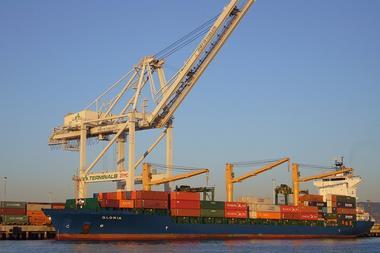Lack of adequate supply chain visibility is likely to be a reason for the increase in disruptions

One in three organisations has experienced cumulative losses of over €1 million during the last year as a result of supply chain disruptions, according to a new report by the Business Continuity Institute.
Supported by Zurich, the report found a decrease in companies that experienced at least one disruption, at 70% this year compared to 74% last year. However, those organisations suffered more of them, with the percentage of organisations that experienced at least eleven disruptions during year increasing from 7% to 22%.
The increased cost of disruption could be attributed to significant increases in the loss of productivity (68% up from 58% in 2015), cost of working (53% up from 39%) and damage to brand or reputation (38% up from 27%), all as a result of supply chain disruptions. The research found 43% of organisations do not insure these losses meaning that they are bearing the full brunt of the cost themselves.
Unplanned IT and telecommunications outage remains the top cause of disruption with loss of talent/skills moving up to second place from sixth in 2015. The remaining members of the top five causes of disruption were outsourcer failure, transport network disruption and cyber-attack/data breach.
One of the reasons for the increase in disruptions for many companies may be a lack of adequate visibility over their supply chain, with 66% of companies maintaining adequate visibility this year, compared to 72% last year.
The BCI said that ensuring supply chain visibility remains one of the biggest challenges to companies with the data showing increased dependencies between suppliers and downstream organisations, reinforcing the need for corporates to understand their supply chain in more depth, identify key suppliers and improve reporting of disruptions.
Patrick Alcantara DBCI, senior research associate at the BCI and author of the report, commented: “Our study reinforces observations about the growing cost of supply chain disruptions and its negative impact on an organisation’s reputation. More than ever, it is important to focus on supply chains, identify areas of risk, and deploy appropriate arrangements which increase resilience. Business continuity has an essential role to play in this. Our research abundantly shows how business continuity professionals, working with their supply chain counterparts, can build supply chain resilience and direct management efforts in this area.”
Nick Wildgoose, global supply chain product leader at Zurich Insurance Group, added: “Adequate supply chain resilience is a prerequisite for improving organisational performance. You need senior management support to achieve this, in terms of breaking down the organisational silos and providing appropriate resources. The businesses that invested in this area have recognised there is a compelling business case to do this and are seeing the benefits.”




















No comments yet